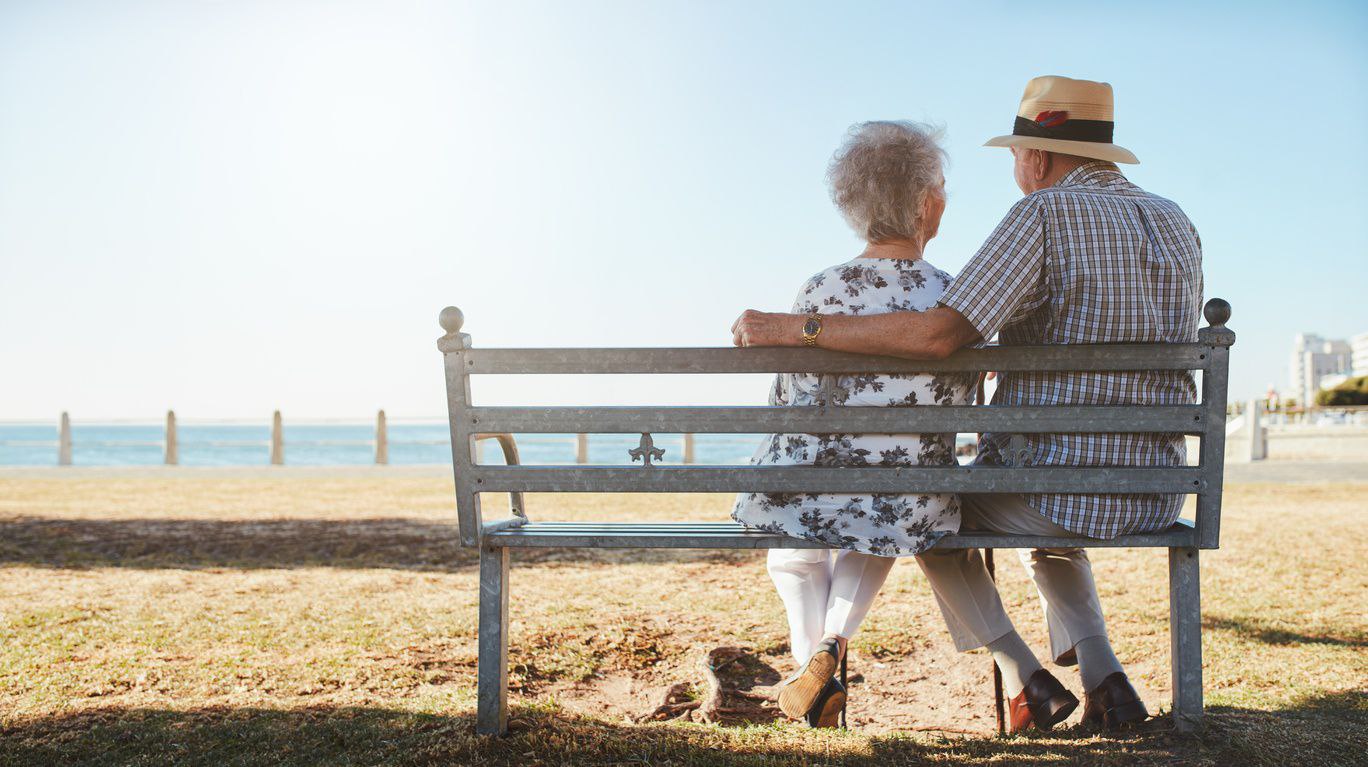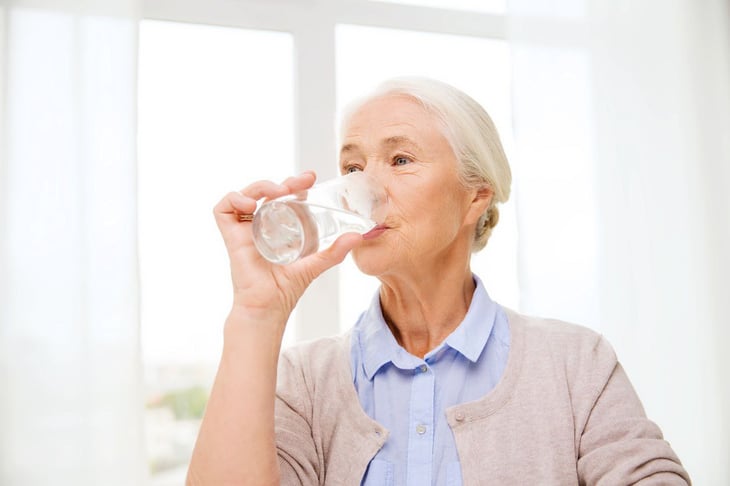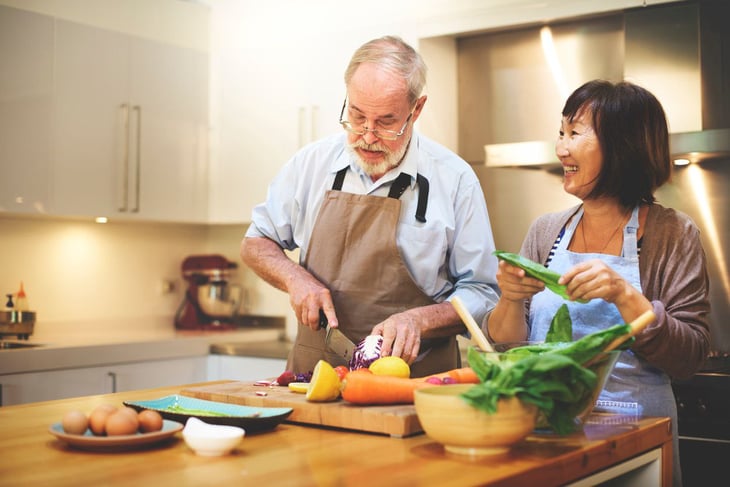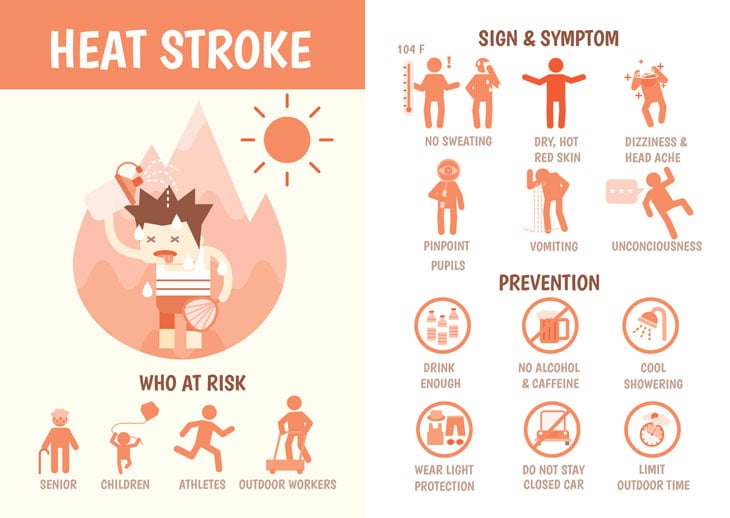
Fun in the Sun: Enjoying Summer Without Worrying About the Heat
Health & Aging | Caregiver Support
Updated from the original publication on June 4, 2020.
With summer right around the corner, and many people spending lots of time outdoors, it is important to keep your health in mind. Summer is a time for the outdoors, but it can be easy to fall victim to heat-related health issues if you’re not careful. The good news is there are a few summer safety tips you can follow to make sure that doesn’t happen.
Disclaimer: This blog is meant for informational purposes only. For medical advice, seek a doctor.
Stay hydrated

The most important piece of advice you can follow in the summer is to stay hydrated. This is true for everyone, not just seniors, although seniors are more at risk of becoming dehydrated or experiencing heat stroke than most. Drinking water, juice, or sports drinks throughout the day will replenish your fluids. Remember to drink a variety of each kind, as too much water can lead to an electrolyte imbalance.
Not all drinks are created equal. There are some liquids you should avoid in the summer if you can. Hot drinks like tea and coffee can raise your body temperature even more. The caffeine in those drinks is also bad for you during the summer. Caffeine works like a diuretic, and can get rid of fluids faster than you’re replenishing them.
Staying hydrated may seem like a hassle, but it doesn’t have to impede all the fun. There are plenty of activities you can do while remembering to drink fluids. Low-intensity activities like gardening or visiting a shady park can be supplemented with a bottle of water. Picnics are also great for staying hydrated, since you’ll need to bring drinks too!
To learn more about staying hydrated: click here.
Plan Ahead
Planning your day around high temperatures can be a good idea for many seniors. The hottest parts of the day are usually between noon and around 3 or 4PM. So it may be a good idea to schedule your activities before or after these hours, especially if you’re planning on being outdoors. That way, you’ll be a little cooler and you may feel like you can stay outside longer doing what you enjoy.
Take a Shower or Bath
Showers or baths are a good way to lower your body temperature when it gets really hot out. The cool water will help, but so will the evaporation while drying. If you don’t want to stay in one place while you cool off, putting a wet cloth or towel around your neck can have a similar effect. That method works outdoors as well, but the cooling effect won’t last as long.
Cool Down in the Kitchen

What you eat can also have an impact on your body heat. A hot meal like soup probably doesn’t sound too appetizing in the summer heat, and for good reason! You don’t want to raise your body temperature any more than you have to. Try eating foods that are refrigerated, like salads or fruits. Sandwiches, smoothies, and hard boiled eggs are a good option too.
You may also want to consider foods with sodium and potassium to restore your electrolyte balance when losing fluids or drinking a lot of water. Fruits, vegetables, and nuts can be a good source.
Don’t Fear the Air Conditioning
Air conditioning can be a blessing during the summer, but some people might not want to turn it on for fear of rising electricity costs. While that is something to consider, the benefits of AC may outweigh the downsides in most cases. The most obvious benefits are a cooler home and a break from the heat, but air conditioning can also help you sleep better at night. Our body temperature drops slightly at night, and if it gets too hot, we might not get the sleep we need. This can be especially important for seniors. The use of air conditioning may give you a more restful night’s sleep, which will help prevent other health problems.
If you don’t have air conditioning in your home, fans can work just as well.
Dress Appropriately
How you dress can also affect how much you enjoy the summer days. Wearing light, breathable fabrics like cotton can help you stay cool outside, but what if you’re constantly changing from outdoors to indoors? Dressing in layers can help with that. You’ll be able to to move between your air conditioned home and the hot sun easier. A light sweater or cardigan may be able to do the trick, but it will depend on the situation.
Wear Sunblock
When you are planning on being outside, it’s imperative that putting on sunscreen is part of your routine. Sunblock offers a little break from the heat, but it’s most important feature is protecting your skin from damage. Even a simple sunburn can come back to bite you later. It will increase your body temperature, and can make you uncomfortable in any weather. Wearing a hat or visor can add some extra protection and cooling power for your head and face.
Consider Indoor Activities
Just because the sun is shining outside doesn’t mean you have to spend every second of your day out there! There are plenty of indoor activities you can do. They don’t have to be in your own home either. Head out to a local recreation or senior center to see what’s going on there, or go see a movie! Summer usually brings some great new movies along with it, and most movie theaters are air conditioned.
If you have exercise on your mind, staying indoors may be the safest course of action. Walking on a treadmill at the gym may not seem as nice as walking outdoors, but it’s much safer. You can also go for a walk at the mall, or try some water exercises to stay cool.
Know the Signs of Heat-Related Illness
The heat can be tough to beat, even if you’re following all these tips. It’s important to know the signs of heat-related illness so that you can get help if you or a loved one starts to experience them. There are two main types of heat illness: heat exhaustion and heat stroke. Heat exhaustion is the more mild form. Symptoms can include:
- Heavy sweating or no sweating at all
- Paleness
- Muscle cramps
- Tiredness, weakness, or dizziness
- Headache
- Nausea or vomiting
- Fainting
- Fast and shallow breathing
Heat stroke is more serious. Heat stroke can cause death or disability if emergency treatment is not provided. Warning signs may include:
- An extremely high body temperature
- Red, hot, and dry skin
- A rapid, strong pulse
- Strong headache
- Dizziness
- Nausea
If you suspect you or a loved one is experiencing a heat-related illness, the National Institute of Health suggests you get that person to a shady or air conditioned area, cool the person off with a wet towel or shower, and try to get the person some fluids if they can swallow safely. If you think they may be suffering from a heat stroke, call 911.
Of course, it’s entirely possible to enjoy the summer while still keeping these signs in mind. By following the tips above, you may be able to get the most out the season without having to worry at all. For more on how to stay safe in the summer, download our free Summer Survival Checklist below. 
About Presbyterian Senior Living
As the trusted leader in aging services, Presbyterian Senior Living combines over 97 years of experience with innovative approaches to senior communities and services. Across our 27 communities in PA, MD, OH, and DE, we serve over 6,000 seniors. We are committed to: FOSTERING teamwork and responsibility. UPHOLDING integrity in every action. EMBRACING innovation to create opportunities for everyone’s success. LEADING with compassion and respect.

